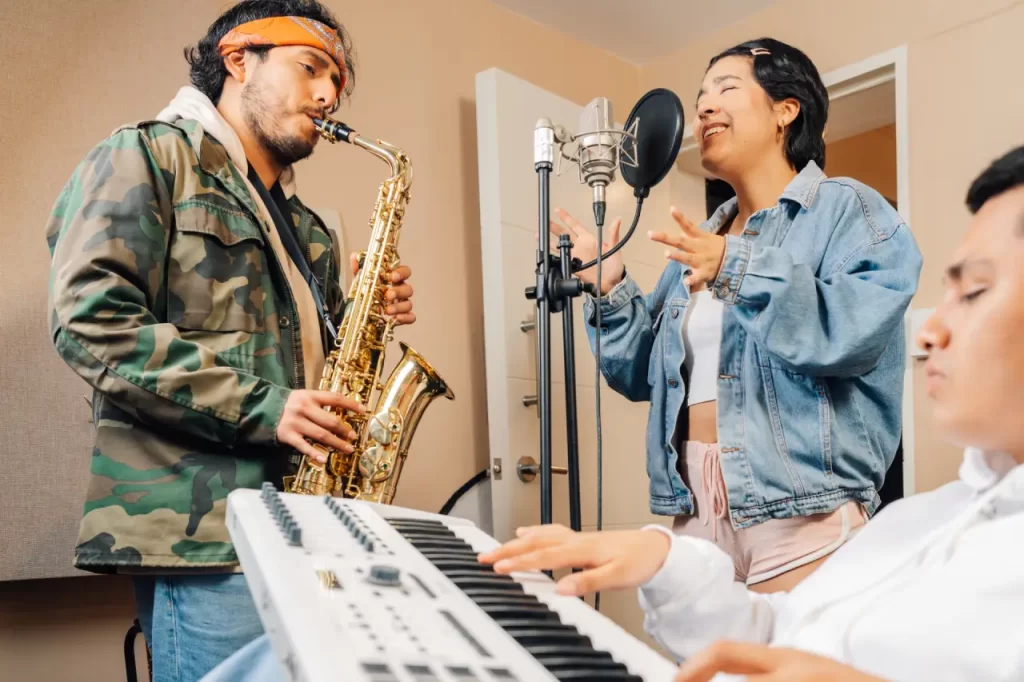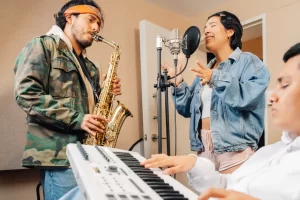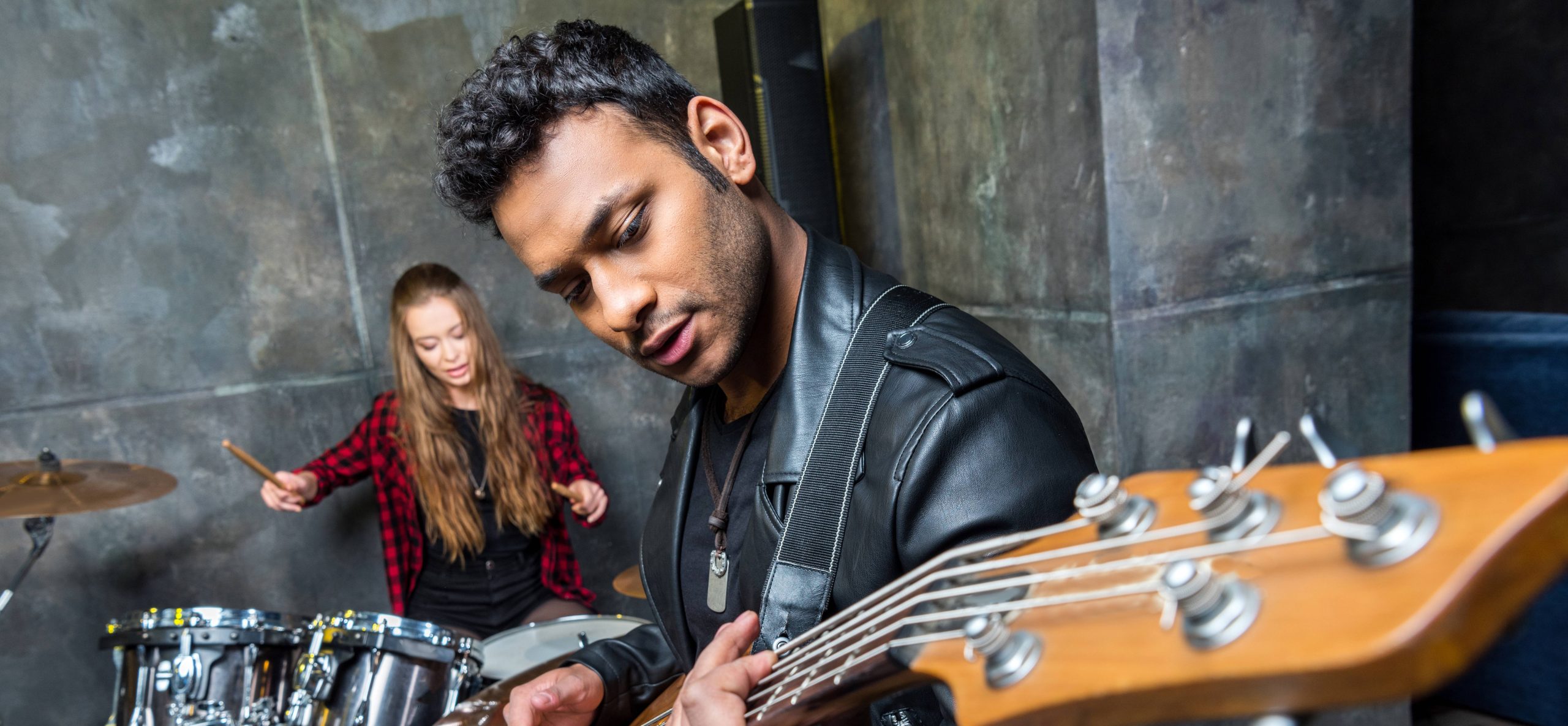For decades, musicians have relied on traditional royalties—mechanical, performance, and synchronization—to generate income from their music. While these methods remain essential, the industry has evolved, and artists now have access to a variety of alternative licensing opportunities that go beyond traditional revenue streams.
In today’s digital landscape, the demand for music extends far beyond radio, streaming services, and TV. From micro-licensing platforms and video game soundtracks to AI-generated adaptive music and blockchain-based licensing, musicians can now explore new ways to monetize their work. These alternative models provide greater flexibility, open up new markets, and allow artists to earn revenue from unconventional sources.
As independent artists and producers navigate an increasingly competitive space, understanding and leveraging these unique licensing opportunities can be a game-changer. Whether you’re a composer looking to license your tracks for fitness apps, a producer exploring podcast placements, or an artist considering NFTs and blockchain royalties, there’s a wealth of untapped potential waiting to be explored.
In this article, we’ll dive into eight innovative music licensing opportunities that go beyond traditional royalties, offering artists new ways to sustain and grow their careers in an ever-changing industry.
Understanding Traditional vs. Alternative Licensing Models
Music licensing has traditionally been structured around three main revenue streams: mechanical, performance, and synchronization royalties. Mechanical royalties come from the reproduction of music, such as CD sales, digital downloads, and streaming. Performance royalties are collected when music is played on the radio, TV, or in public spaces, managed by performance rights organizations (PROs) like ASCAP, BMI, or PRS. Synchronization (sync) licensing allows music to be used in films, commercials, and TV shows, often generating significant payouts for artists.
While these traditional models remain crucial, they are highly competitive and often inaccessible for independent artists. Alternative licensing models, however, offer more flexibility and direct earning potential. Platforms like micro-licensing marketplaces enable musicians to sell music for small-scale projects, while custom compositions allow artists to work directly with brands, filmmakers, or game developers. Emerging technologies like blockchain and NFTs are also reshaping licensing, giving artists more control over their rights and revenue.
By exploring alternative licensing opportunities, artists can diversify their income and reach new audiences beyond the conventional music industry. Whether through AI-generated music, adaptive soundscapes, or licensing for niche markets, these new models are opening doors for musicians worldwide.
Micro-Licensing & Subscription-Based Licensing
Micro-licensing and subscription-based licensing have revolutionized how independent artists and producers monetize their music. Unlike traditional sync licensing, which often involves complex negotiations and high upfront fees, micro-licensing allows musicians to license their tracks for small-scale projects at affordable rates. This model is particularly popular among content creators, YouTubers, indie filmmakers, and small businesses who need music for videos, advertisements, or podcasts but don’t have the budget for major sync deals.
Platforms like Artlist, Epidemic Sound, and Musicbed operate on a subscription basis, offering unlimited access to a vast music library for a monthly or yearly fee. Artists who contribute their music to these platforms receive upfront payments, royalties, or revenue shares based on usage. This provides a consistent income stream while exposing music to thousands of potential users.
One of the biggest advantages of micro-licensing is scalability. Instead of relying on a few high-paying deals, artists can earn steady revenue through multiple small licenses. Additionally, the demand for background music in digital content is growing rapidly, making this an ideal model for independent musicians looking to expand their reach and generate passive income from their existing catalog.
Custom Compositions & Commissioned Work
For musicians looking to go beyond traditional royalties, custom compositions and commissioned work present lucrative opportunities. Unlike standard licensing models where pre-existing tracks are licensed for various uses, custom compositions involve creating original music tailored to a specific project. This can include advertising campaigns, video games, corporate branding, film scores, and even private commissions for events like weddings or personal projects.
Brands and media companies often seek exclusive, high-quality music to align with their identity and messaging. Platforms like SoundBetter, Voices.com, and private music agencies connect musicians with businesses and filmmakers looking for unique soundtracks. Additionally, game developers frequently hire composers to create interactive and immersive scores, which are crucial for enhancing gameplay experiences.
Commissioned work offers artists a higher level of creative control and direct payment, often negotiated upfront instead of waiting for long-term royalties. Some projects may even offer buyouts, where the client pays a one-time fee for full ownership of the composition.
This model is particularly beneficial for composers, producers, and session musicians who prefer a project-based approach rather than relying on streaming or licensing royalties. With the right network and marketing, custom compositions can become a highly profitable and sustainable revenue stream for independent artists.
NFT and Blockchain-Based Music Licensing
Blockchain technology and NFTs (non-fungible tokens) are transforming the way musicians license and monetize their work. Unlike traditional licensing models controlled by intermediaries, blockchain-based licensing offers artists direct control over their music rights and earnings. By minting music as NFTs, artists can sell unique or limited-edition licenses, granting buyers exclusive usage rights or access to special perks, such as behind-the-scenes content, early releases, or lifetime licensing.
One of the key advantages of blockchain licensing is transparency and automated royalty distribution. Smart contracts—self-executing agreements stored on the blockchain—allow musicians to receive payments instantly whenever their music is used or resold. This eliminates the delays and administrative fees associated with traditional royalty collection. Platforms like Audius, Royal, and Opulous are leading the way in blockchain music licensing, enabling artists to earn directly from fans and businesses.
Additionally, NFTs create new possibilities for fractional ownership, allowing multiple stakeholders—such as producers, songwriters, and collaborators—to share revenue seamlessly. This decentralized model reduces industry gatekeeping and empowers musicians with greater financial autonomy.
While still in its early stages, NFT and blockchain-based licensing present a game-changing opportunity for artists looking to break free from traditional constraints and establish direct revenue streams.
Video Game & VR/AR Music Licensing
The video game industry has become one of the most lucrative markets for music licensing, offering musicians opportunities to create immersive soundtracks, sound effects, and adaptive music for interactive experiences. With gaming revenue surpassing the film and music industries combined, licensing music for video games can be a highly profitable venture.
Unlike traditional sync licensing, video game music often requires looping compositions, dynamic soundscapes, and adaptive audio that change based on player actions. This opens up new possibilities for artists to create interactive and evolving soundtracks. Major game studios and indie developers alike seek custom compositions or pre-licensed tracks to enhance their projects. Platforms like Unity Asset Store, Unreal Engine Marketplace, and SoundCloud for Games allow musicians to license their work to game developers, while direct collaborations with studios can result in higher payouts.
Beyond traditional gaming, Virtual Reality (VR) and Augmented Reality (AR) applications are fueling demand for immersive audio experiences. Whether for VR meditation apps, fitness programs, or interactive virtual concerts, the need for high-quality, ambient music is growing.
For artists looking to enter this space, networking with game developers, submitting music to game libraries, and understanding adaptive music technology can open new and sustainable revenue streams in the gaming industry.
AI-Generated & Adaptive Music Licensing
The video game industry has become one of the most lucrative markets for music licensing, offering musicians opportunities to create immersive soundtracks, sound effects, and adaptive music for interactive experiences. With gaming revenue surpassing the film and music industries combined, licensing music for video games can be a highly profitable venture.
Unlike traditional sync licensing, video game music often requires looping compositions, dynamic soundscapes, and adaptive audio that change based on player actions. This opens up new possibilities for artists to create interactive and evolving soundtracks. Major game studios and indie developers alike seek custom compositions or pre-licensed tracks to enhance their projects. Platforms like Unity Asset Store, Unreal Engine Marketplace, and SoundCloud for Games allow musicians to license their work to game developers, while direct collaborations with studios can result in higher payouts.
Beyond traditional gaming, Virtual Reality (VR) and Augmented Reality (AR) applications are fueling demand for immersive audio experiences. Whether for VR meditation apps, fitness programs, or interactive virtual concerts, the need for high-quality, ambient music is growing.
For artists looking to enter this space, networking with game developers, submitting music to game libraries, and understanding adaptive music technology can open new and sustainable revenue streams in the gaming industry.
Licensing for Podcasts & Audiobooks
As podcasts and audiobooks continue to surge in popularity, the demand for high-quality licensed music has grown exponentially. Podcasters and audiobook producers often require intro and outro music, background tracks, and transition sounds to create a more engaging listening experience. This presents a lucrative opportunity for musicians to license their work for spoken-word content.
Unlike traditional sync licensing, podcast and audiobook licensing operates on a simpler, more flexible model. Many podcasters prefer to purchase royalty-free or one-time-use licenses to avoid ongoing royalty payments, making platforms like Podcast Music, PremiumBeat, and Artlist popular choices for sourcing music. Musicians can upload their tracks to these platforms or offer direct licensing through their own websites.
Some podcasters and audiobook publishers seek exclusive compositions to ensure their content stands out. This means artists can negotiate custom licensing deals, earning higher fees for original compositions tailored to specific projects. Additionally, as audiobook platforms like Audible and Storytel expand, there’s a growing need for immersive soundscapes and chapter transition music.
By tapping into this rapidly growing industry, artists can generate passive income, gain exposure, and build relationships with content creators, ultimately expanding their reach beyond traditional music audiences.
To Sum It Up
The music industry is evolving, and artists no longer have to rely solely on traditional royalties to earn a living. Exploring alternative music licensing opportunities can open doors to new revenue streams, greater financial independence, and increased exposure. Whether through micro-licensing, subscription-based platforms, commissioned compositions, blockchain-based licensing, or gaming and VR/AR soundtracks, musicians today have more options than ever to monetize their work creatively.
From licensing music for podcasts and audiobooks to selling NFT-backed rights or composing for indie games, each opportunity comes with unique advantages. These models provide flexibility, scalability, and control over how music is used and distributed, allowing artists to diversify their income while reaching untapped markets.
As technology advances and new industries emerge, the demand for licensed music will only continue to grow. By staying informed and adapting to these trends, artists can leverage modern licensing opportunities to sustain and scale their careers.
If you’re a musician looking to expand beyond traditional royalties, now is the time to explore these unique licensing models. The future of music licensing is dynamic, diverse, and full of potential—be ready to seize the opportunities.




